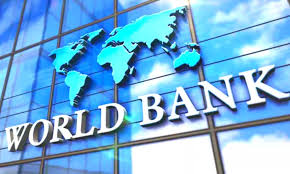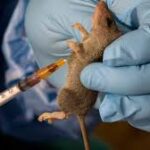$300M World Bank loan to upgrade health security

Abuja, Nigeria – In a significant move to strengthen Nigeria’s healthcare system, the World Bank has approved a $300 million loan to boost health security and resilience across the country. The funding comes at a crucial time as Nigeria continues to grapple with challenges ranging from infectious disease outbreaks to weak health infrastructure and limited emergency preparedness.
This investment aims to improve disease surveillance, response systems, and health infrastructure across states, especially in underserved regions, while addressing the gaps exposed during the COVID-19 pandemic and recurring public health crises such as Lassa fever, cholera, and malaria.
Strengthening Nigeria’s Health Security
The $300 million facility, under the Health Emergency Preparedness and Response Project (HEPRP), will provide resources to upgrade:
-
Disease surveillance systems for early detection of outbreaks.
-
Primary healthcare facilities to handle emergencies effectively.
-
Laboratories and diagnostic centers to improve testing capacity.
-
Training for healthcare workers in emergency preparedness and response.
-
Stockpiling of medical supplies and vaccines to ensure rapid mobilization during health crises.
The World Bank emphasized that the loan will also support Nigeria’s National Action Plan for Health Security, which aligns with global frameworks such as the International Health Regulations (IHR 2005).
Nigeria’s Health Challenges
Nigeria faces persistent health security threats, which strain its already fragile healthcare system. According to the Nigeria Centre for Disease Control (NCDC), outbreaks of Lassa fever, cholera, meningitis, and yellow fever remain seasonal challenges. Additionally, maternal and child mortality rates in Nigeria remain among the highest globally.
The COVID-19 pandemic further revealed the country’s limited preparedness in terms of intensive care capacity, vaccine deployment, and digital health infrastructure. This new World Bank loan is designed to ensure that Nigeria is better equipped for both current and future health threats.
Government Reaction
Nigeria’s Minister of Health and Social Welfare, Prof. Muhammad Ali Pate, welcomed the funding, calling it a “transformational opportunity” for the healthcare sector.
“This $300 million support from the World Bank will help Nigeria strengthen its health emergency preparedness, modernize disease surveillance, and protect millions of lives. It is not just about preventing future pandemics but also about ensuring every Nigerian has access to a more resilient healthcare system,” Pate said.
State governments are also expected to play a key role in implementing the projects, particularly in digital health adoption, capacity building, and rural healthcare delivery.
Focus on Technology and Data
A significant portion of the loan will be dedicated to digitizing Nigeria’s health system. This includes:
-
Real-time disease reporting platforms for early warnings.
-
Mobile health technologies to improve data collection in rural areas.
-
AI-powered diagnostic support tools for faster outbreak detection.
-
Integration of state-level health information systems into a central database.
Experts believe this digital shift will improve decision-making, resource allocation, and transparency within the healthcare system.
Global Health Security and Nigeria’s Role
The World Bank highlighted that Nigeria’s health security is not only a national concern but also a regional and global priority, given the country’s size and position in West Africa. With over 220 million people, Nigeria’s preparedness impacts neighboring countries and the continent at large.
Dr. Chikwe Ihekweazu, Assistant Director-General of the World Health Organization (WHO) and former Director-General of NCDC, stressed the importance of such investments:
“Strengthening Nigeria’s health security is critical for Africa. When Nigeria builds stronger systems, the entire region becomes safer from epidemics and pandemics.”
Economic Implications
The loan is expected to have a direct economic impact by reducing healthcare costs associated with preventable disease outbreaks. The World Bank estimates that epidemics cost African economies over $2.4 billion annually due to lost productivity and emergency response expenditures.
For Nigeria, investing in health security is not only about saving lives but also about protecting economic growth. By minimizing the disruptions caused by health emergencies, businesses can operate more smoothly, and communities can remain productive.
Looking Ahead
While the World Bank loan presents a major opportunity, experts caution that effective implementation, accountability, and transparency will determine its success. Past health interventions in Nigeria have often faced challenges such as corruption, poor coordination, and weak monitoring mechanisms.
Civil society organizations and health advocates are urging the government to ensure that the funds are deployed efficiently and equitably, especially in rural areas where health facilities are under-resourced.
Conclusion
The $300 million World Bank loan marks a critical step in strengthening Nigeria’s health security infrastructure. With a focus on surveillance, emergency preparedness, and digital health, this initiative has the potential to transform how Nigeria responds to epidemics and health threats.
If properly managed, the investment could significantly reduce disease outbreaks, save lives, and reinforce Nigeria’s position as a leader in public health resilience in Africa.
Written by Fawzi Rufai reviewed by Sesan Kareem


